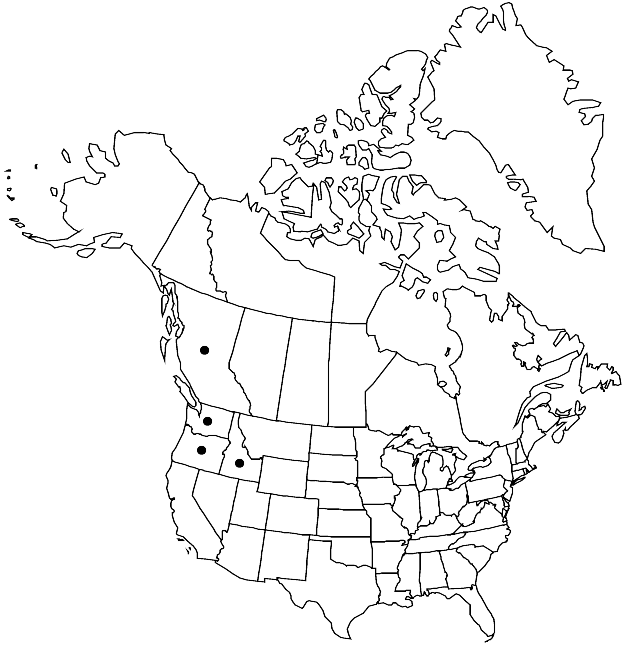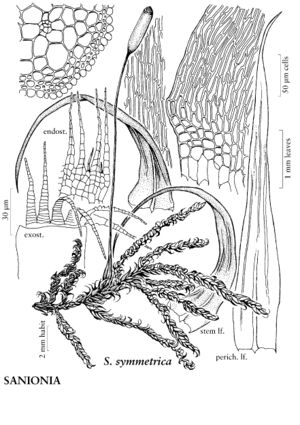Sanionia symmetrica
Lancashire Cheshire Naturalist 1921: 13. 1922.
Plants medium-sized. Stems ± pinnate. Stem leaves circinate or falcate, plicate or strongly plicate, 0.3–1.5 mm wide; base rounded-triangular; margins narrowly recurved mid leaf or sometimes plane, denticulate or finely denticulate distally; apex long- or very long-acuminate; costa in bottom of shallow, wide-angled fold (or not in fold); alar region transversely triangular, transition to supra-alar cells sudden, supra-alar cells quadrate to rectangular, chlorophyllose, walls thin or slightly incrassate, eporose, region equal in size to or smaller than alar region; apical laminal cells with distal ends occasionally prorate abaxially. Perichaetia with inner leaves gradually narrowed to apex, margins finely denticulate to denticulate distally, apex long-acuminate. Capsule erect or slightly inclined; exothecial cells ± isodiametric, in 2–4 rows; exostome specialized, teeth long, narrow, border not widened at transitional zone in pattern of external tooth; endostome specialized, in recently dehisced capsules strongly yellow, basal membrane constituting 25–33% endostome height, processes perforated only along midline, cilia rudimentary.
Habitat: Moist and wet habitats, forests (usually deciduous), shores of lakes and rivers, swamps, logs, stumps, tree and shrub bases, soil
Elevation: low to moderate elevations
Distribution

B.C., Idaho, Oreg., Wash.
Discussion
The gametophyte of Sanionia symmetrica is impossible to separate with certainty from that of S. uncinata; however, the specialized peristome of S. symmetrica is very different from that of S. uncinata, and there can be no doubt that S. symmetrica is a distinct species. Occasional specimens of S. uncinata may have more or less straight and erect capsules, but in these the capsules are somewhat wider than in S. symmetrica and the peristome is still unspecialized.
Selected References
None.
